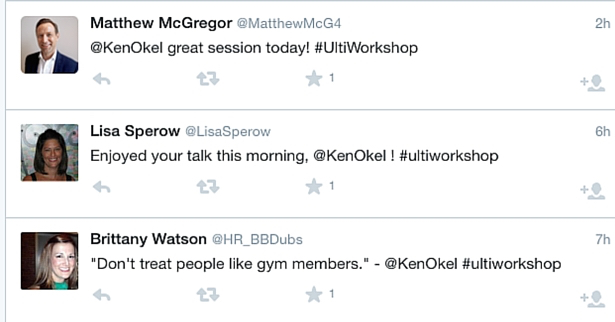 Does the idea of accepting feedback make you nervous? While you may quickly embrace compliments, do you feel uncomfortable when the quality of your work is criticized.
Does the idea of accepting feedback make you nervous? While you may quickly embrace compliments, do you feel uncomfortable when the quality of your work is criticized.
Can the storm of emotions produced by criticism keep us from hearing good information? These are the things that can shape our careers.
Sometimes, we can be uncomfortable receiving positive feedback and miss out on important praise of our strengths.
With a focus on professional growth, consider these tips for accepting feedback:
Just Listen When Accepting Feedback
When told something that you didn’t do well, it’s very tempting to immediately interrupt and start defending yourself. Resist this urge. Listen to the comments and think about them for a moment or take a breath before you say anything.
Remember that we all have the need to be heard, so by considering the feedback, you are, at a minimum, showing respect. When you do speak, say something like, “Thanks for telling me that.” You want to respond in a neutral, non-aggressive way because you are on a quest for information that can improve you professionally.
You may want to follow up with a question designed to let you know what you should do the next time you’re in a similar situation. “How would you handle the situation?” is a good one in that it gives you an example to follow. People also enjoy sharing their expertise and experiences.
Analyze Your Success
When you receive positive feedback, it’s easy to congratulate yourself, while forgetting what you did well. This is when the ego can take over.
It’s possible to stumble into success with no idea of what you did well. To get the full story, ask some questions like, “What did I do well?” or “What could I do better?” This can start a discussion that helps you build on your success. Plus, it can establish your worth.
Feedback is Not a Tattoo
It’s easy to hold on to feedback too long, making it a tattoo on your brain. Listen to the information, consider how you can improve or continue a good practice, and then, move on.
Some like the analogy of an athlete putting aside thoughts of a bad play, in order to clear their mind for the next one.
Consider the Source
Most advice comes from a well meaning place but that doesn’t mean it’s always right. Upon hearing it, you may know immediately that it’s worthless but it’s still important to listen and then thank the person for the feedback. Again, just the act of accepting feedback shows respect to the other person.
While the feedback may not have value, you don’t want to close the door on future advice that might have merit. Keep the lines of communication open.






